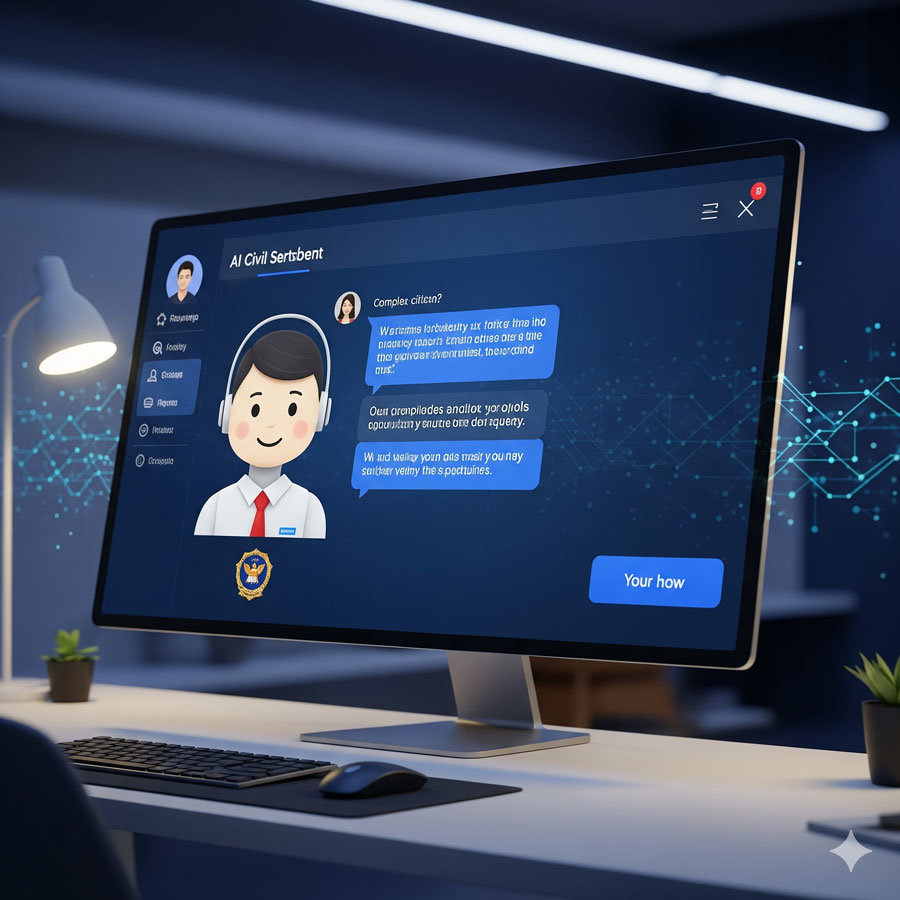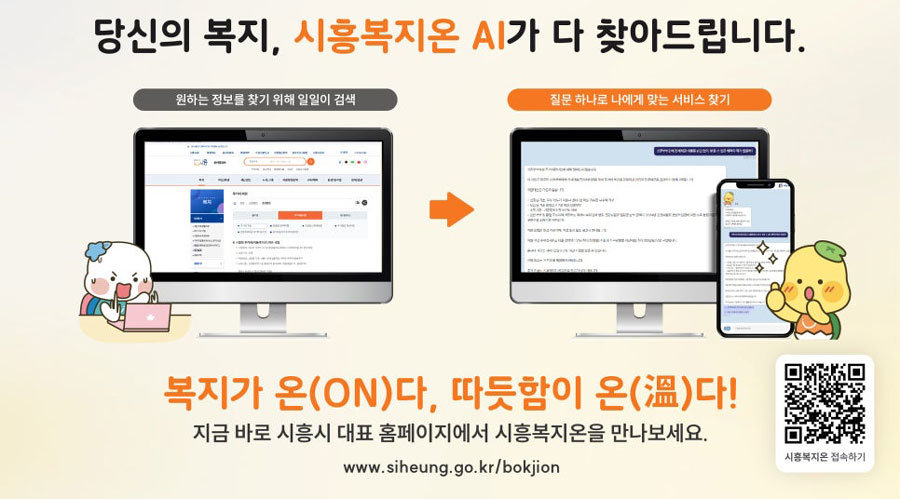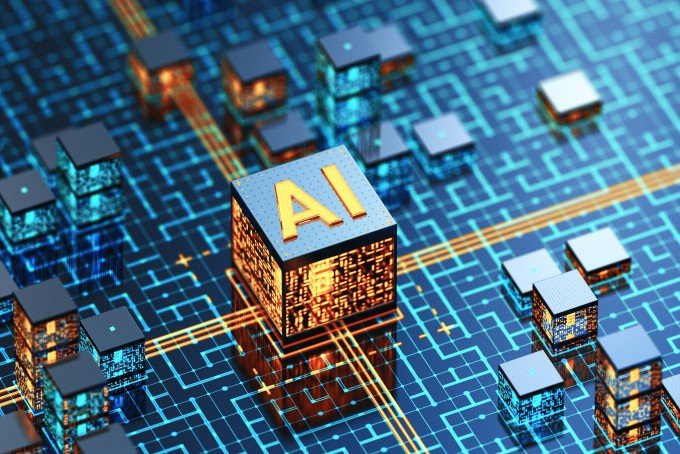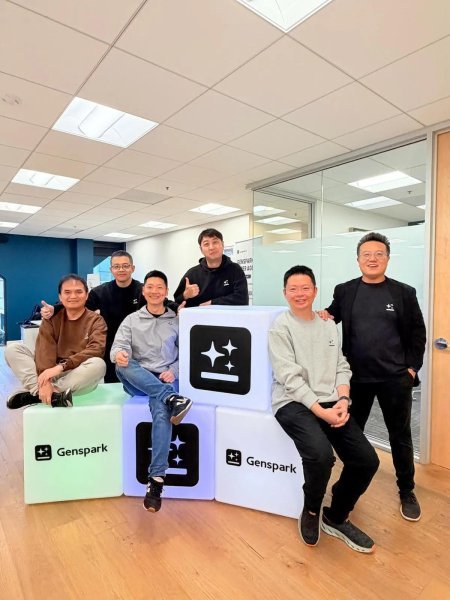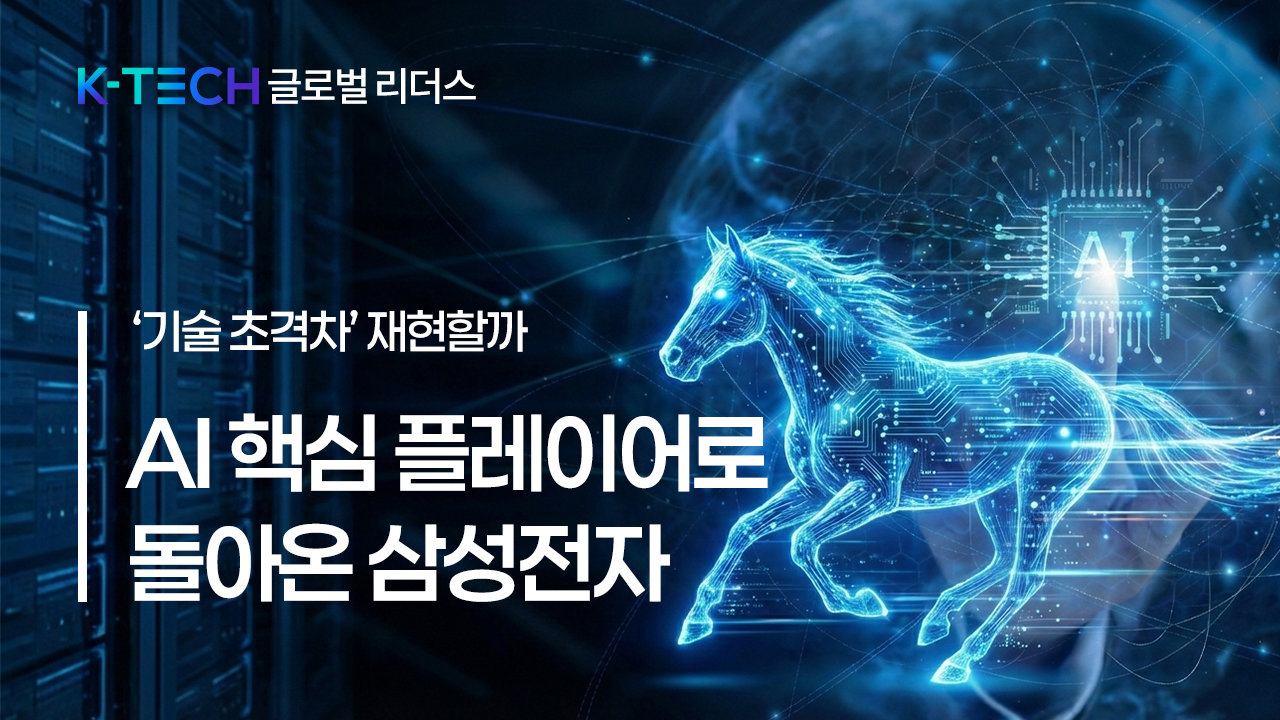
AI Startup
Regulatory Reforms and Tech Usher in 'AI Officials' Era
Dong-A Ilbo |
Updated 2025.10.02
The so-called 'population cliff' phenomenon is an imminent future for South Korea. According to Statistics Korea, the total fertility rate in 2024 is expected to slightly rebound to 0.75, but it remains the lowest in the world. By 2030, the society where there are more people in their 60s than in their 30s will become a reality. Local governments, public institutions, and small and medium-sized enterprises are already experiencing recruitment difficulties, administrative gaps, and a shortage of welfare personnel.
In this situation, the importance of advanced technology is increasing. Particularly, artificial intelligence (AI) is not just a means of innovation but has become an infrastructure that fills labor gaps and maintains systems. In the public sector, the rapid introduction of generative AI and chatbot-based automation systems in areas such as repetitive civil complaint processing, welfare counseling, and administrative guidance is spreading the use of technology in the form of 'AI civil servants.'
Barriers to Public AI Adoption Being Gradually Resolved
In the past, the public sector was slow to adopt AI due to security concerns and various regulations. For example, the network separation system, which completely blocks connections to external networks, made it impossible to access the internet on work PCs, making it difficult to apply generative AI like ChatGPT to work.
The use of private clouds was also strictly limited. However, large-scale computing resources are essential for implementing high-performance AI services. There was a practical limitation in implementing the latest AI technology with only on-premise (internal network) environments with limited performance.
However, the atmosphere has been rapidly changing recently. The National Intelligence Service launched the 'National Network Security Policy Improvement Joint Task Force' in early 2024 and announced a roadmap to transition to a multi-layered security system (MLS) that classifies grades according to the importance of work. This has also significantly eased cloud regulations.
Particularly, the advancement of hybrid cloud technology has been a great help. It allows for a flexible structure where data requiring security is placed on-premise, and the rest is placed in the cloud. This has become a decisive turning point for public institutions to fully adopt AI services.
Seoul's 'Seoul Talk', Incheon's AI Strategy... Competition for Public AI Adoption
Recently, various public institutions have been actively adopting AI technology. This trend is particularly noticeable in the public service sector. Since 2020, Seoul has been operating the KakaoTalk-based AI counselor chatbot 'Seoul Talk,' providing 550 types of administrative information. It automatically provides information that citizens are curious about in areas such as welfare, environment, culture, economy, and safety 24 hours a day and can also handle on-site civil complaints such as illegal parking reports and quarantine applications.
Incheon also declared its vision of an 'AI Coexistence City' in August this year, expressing its intention to apply AI to all aspects of life, including leisure, welfare, transportation, healthcare, education, and administration. As a city centered on manufacturing, it is also focusing on industrial AI innovations such as AI factory transitions and logistics automation. It also announced the AI transition of administration, including establishing a city master plan using AI and introducing a citizen opinion collection platform using AI.
Siheung's 'Siheung Welfare ON' Embarks on AI-based Welfare Services
A particularly noteworthy case is Siheung's 'Siheung Welfare ON.' Officially launched on April 17 this year, this service is based on a small large-scale language model (sLLM) that has learned Siheung's vast welfare data. When citizens enter questions on the city's website, AI provides customized welfare information in real-time 24 hours a day.
Siheung Welfare ON goes beyond simple FAQ automatic responses. It actively guides welfare systems that can be benefited from according to the user's situation and conditions and provides detailed application methods. The core goal is to reduce welfare blind spots and help citizens with low information accessibility easily find welfare benefits.
Siheung Welfare ON is also an example of public-private cooperation. The biggest concerns when public institutions introduce AI services are 'security' and 'stability.' Siheung collaborated with the private cloud specialist company 'Gabia' to solve this problem. In this project, Gabia supplied its 'cloud for public institutions (IaaS).'
The key is the actual implementation of the hybrid cloud. The core infrastructure necessary for service operation is managed in the cloud, and large-scale calculations required for AI inference are performed using bare-metal (GPU) servers. This allowed for simultaneous security, processing speed, and system efficiency.
Public AI Must Consider 'Philosophy' Beyond Simple Functionality
Public AI is not about 'function' but 'environment' and 'philosophy' first. It must be able to answer questions such as how to protect citizens' data, who is responsible when AI's answers are incorrect, and whether citizens with information gaps can equally use the services.
Through AI, civil servants can focus on more complex and creative tasks, and citizens can receive faster and more accurate services. However, since public services handle sensitive citizen information, AI design and infrastructure provision based on security, data control, and information reliability are essential.
A representative from Gabia stated in an interview with the press, "In the public sector, it is not just about introducing AI, but also about building a security system and stable infrastructure specialized for the public sector," and expressed their commitment to developing technology for implementing 'AI civil servants' that are as competent and responsible as human civil servants.
IT Donga Reporter Kim Young-woo (pengo@itdonga.com)
AI civil servant image / Source: Generated by Gemini AI
In this situation, the importance of advanced technology is increasing. Particularly, artificial intelligence (AI) is not just a means of innovation but has become an infrastructure that fills labor gaps and maintains systems. In the public sector, the rapid introduction of generative AI and chatbot-based automation systems in areas such as repetitive civil complaint processing, welfare counseling, and administrative guidance is spreading the use of technology in the form of 'AI civil servants.'
Barriers to Public AI Adoption Being Gradually Resolved
In the past, the public sector was slow to adopt AI due to security concerns and various regulations. For example, the network separation system, which completely blocks connections to external networks, made it impossible to access the internet on work PCs, making it difficult to apply generative AI like ChatGPT to work.
The use of private clouds was also strictly limited. However, large-scale computing resources are essential for implementing high-performance AI services. There was a practical limitation in implementing the latest AI technology with only on-premise (internal network) environments with limited performance.
However, the atmosphere has been rapidly changing recently. The National Intelligence Service launched the 'National Network Security Policy Improvement Joint Task Force' in early 2024 and announced a roadmap to transition to a multi-layered security system (MLS) that classifies grades according to the importance of work. This has also significantly eased cloud regulations.
Particularly, the advancement of hybrid cloud technology has been a great help. It allows for a flexible structure where data requiring security is placed on-premise, and the rest is placed in the cloud. This has become a decisive turning point for public institutions to fully adopt AI services.
Seoul's 'Seoul Talk', Incheon's AI Strategy... Competition for Public AI Adoption
Recently, various public institutions have been actively adopting AI technology. This trend is particularly noticeable in the public service sector. Since 2020, Seoul has been operating the KakaoTalk-based AI counselor chatbot 'Seoul Talk,' providing 550 types of administrative information. It automatically provides information that citizens are curious about in areas such as welfare, environment, culture, economy, and safety 24 hours a day and can also handle on-site civil complaints such as illegal parking reports and quarantine applications.
Service screen of 'Seoul Talk' / Source: Seoul City Hall
Incheon also declared its vision of an 'AI Coexistence City' in August this year, expressing its intention to apply AI to all aspects of life, including leisure, welfare, transportation, healthcare, education, and administration. As a city centered on manufacturing, it is also focusing on industrial AI innovations such as AI factory transitions and logistics automation. It also announced the AI transition of administration, including establishing a city master plan using AI and introducing a citizen opinion collection platform using AI.
Siheung's 'Siheung Welfare ON' Embarks on AI-based Welfare Services
A particularly noteworthy case is Siheung's 'Siheung Welfare ON.' Officially launched on April 17 this year, this service is based on a small large-scale language model (sLLM) that has learned Siheung's vast welfare data. When citizens enter questions on the city's website, AI provides customized welfare information in real-time 24 hours a day.
Siheung Welfare ON goes beyond simple FAQ automatic responses. It actively guides welfare systems that can be benefited from according to the user's situation and conditions and provides detailed application methods. The core goal is to reduce welfare blind spots and help citizens with low information accessibility easily find welfare benefits.
'Siheung Welfare ON' service launched last April / Source: Siheung City
Siheung Welfare ON is also an example of public-private cooperation. The biggest concerns when public institutions introduce AI services are 'security' and 'stability.' Siheung collaborated with the private cloud specialist company 'Gabia' to solve this problem. In this project, Gabia supplied its 'cloud for public institutions (IaaS).'
The key is the actual implementation of the hybrid cloud. The core infrastructure necessary for service operation is managed in the cloud, and large-scale calculations required for AI inference are performed using bare-metal (GPU) servers. This allowed for simultaneous security, processing speed, and system efficiency.
Public AI Must Consider 'Philosophy' Beyond Simple Functionality
Public AI is not about 'function' but 'environment' and 'philosophy' first. It must be able to answer questions such as how to protect citizens' data, who is responsible when AI's answers are incorrect, and whether citizens with information gaps can equally use the services.
Through AI, civil servants can focus on more complex and creative tasks, and citizens can receive faster and more accurate services. However, since public services handle sensitive citizen information, AI design and infrastructure provision based on security, data control, and information reliability are essential.
A representative from Gabia stated in an interview with the press, "In the public sector, it is not just about introducing AI, but also about building a security system and stable infrastructure specialized for the public sector," and expressed their commitment to developing technology for implementing 'AI civil servants' that are as competent and responsible as human civil servants.
IT Donga Reporter Kim Young-woo (pengo@itdonga.com)
AI-translated with ChatGPT. Provided as is; original Korean text prevails.
ⓒ dongA.com. All rights reserved. Reproduction, redistribution, or use for AI training prohibited.
Popular News







